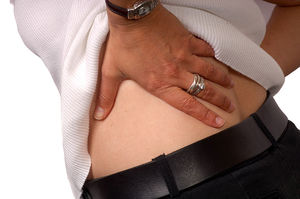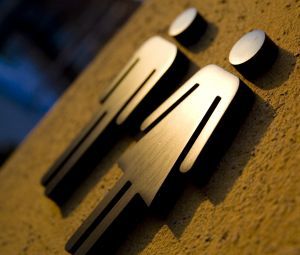Diagnoses of medical conditions such as Fibromyalgia, Chronic Fatigue Syndrome, and Irritable Bowel Syndrome seem to be on the rise here in the United States. The symptoms for these diseases are varied and many and most symptoms can be attributed to multiple disorders. Some medical professionals seem to use Fibromyalgia or one of the other above listed conditions as a “catch all” diagnosis to explain away symptoms that seem to have no other underlying cause.
Unfortunately, many individuals who have been diagnosed with one of these conditions could actually be suffering from interstitial cystitis, or they may even have interstitial cystitis in conjunction with a previously diagnosed disorder. It does appear that there could be a definitive link between Fibromyalgia and interstitial cystitis, though not all patients who suffer from one condition will inevitably suffer from the other as well.
According to the website www.ichelp.org, interstitial cystitis is “a chronic inflammatory condition of the bladder wall which frequently goes undiagnosed.” Interstitial cystitis affects more than 700,000 Americans, 90% of which are women over the age of 40, though it has been diagnosed in people of all ages, genders, and nationalities.
The most commonly reported symptoms of interstitial cystitis, or IC, are lower abdominal pain and pressure, frequent urination and urination urgency, pain with intercourse, and irregular vaginal bleeding in women. There are many lesser-known symptoms that have been linked to Interstitial Cystitis. These other symptoms include migraine headaches, severe fatigue, and muscle and joint pain, and nausea.
Because the symptoms are so varied and can be attributed to other medical conditions, IC often goes for years before being diagnosed. Individuals who are diagnosed with IC have often been previously diagnosed with conditions such as Chronic Fatigue Syndrome, Fibromyalgia, and/or irritable bowel syndrome. It is important to note that a diagnosis of interstitial cystitis does not necessary negate previous medical diagnoses, but it might be important to get a second opinion to determine which symptoms could be attributed to which diseases or illnesses. Out of the four aforementioned conditions, IC has the most definite diagnostic procedure.
So, how is IC diagnosed? Since the symptoms of IC are similar to many other medical conditions, a definitive diagnostic procedure is necessary to confirm or rule out a diagnosis of interstitial cystitis. While under general anesthesia, a urologist will perform a cystoscopy with hydrodistention in order to diagnose IC. During this procedure the bladder is distended to check for hemorrhages on the bladder wall that is indicative of interstitial cystitis. If hemorrhages are present and are combined with other symptoms associated with IC, then a positive diagnosis is confirmed. It is also necessary to rule out other diseases, including bladder or kidney infection, kidney disease, sexually transmitted diseases, bladder cancer, neurological disorders, and vaginal infections.
Unfortunately, once a patient is diagnosed with interstitial cystitis, there are not many treatment options available, and there is currently no cure for this condition. Treatment for IC is usually in the form of diet changes, though there are a few medications currently approved by the FDA to help control IC symptoms, the most common of which is Elmiron. Very severe forms of interstitial cystitis are sometimes treated surgically or with medications instilled directly into the bladder.
If you have been diagnosed with interstitial cystitis or think that you might suffer from IC, the most immediate relief may come from changing your diet to eliminate foods that could be irritating your bladder. Because each IC patient is unique, foods that are tolerable for one patient may not be for another patient. The list of diet do’s and don’ts is long, but the following foods and beverages top the “do not” list for IC sufferers: acidic foods and drinks, including cranberry and orange juice; spicy foods; tomatoes; aged cheeses, yogurt, and sour cream; pitted fruits; nuts; aged, canned, and processed meats; alcoholic beverages; carbonated and caffeinated beverages; and most preservatives and additives. A complete list of foods can be found on various internet websites, including www.ichelp.org/patientinformation/treatmentoptions.
It is noteworthy to understand that although stress seems to influence the severity of Fibromyalgia and irritable bowel syndrome, stress is not a worsening factor to those who suffer from interstitial cystitis. Still, many patients have found some measure of IC relief when practicing relaxation techniques and minimizing outside stressors.


